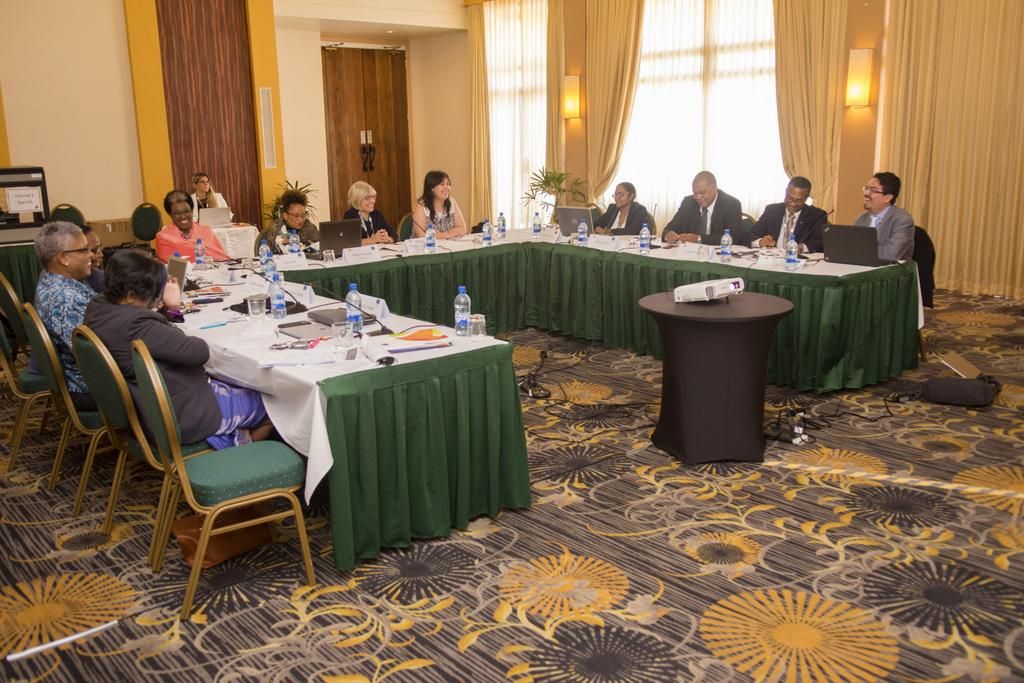The Costa Rican Drug Institute (Instituto Costarricense sobre Drogas (ICD) hosted the first meeting of the working group of Latin American countries which are going to validate the quality criteria on prevention (San José, Costa Rica, 27-28 September 2017). The ICD, as the leader of this activity, coordinates the work done by ten countries in the region (Argentina, Chile, Colombia, Costa Rica, Guatemala, Honduras, Guatemala, Mexico, Panama, Peru and Venezuela), once the exercise is going to be completed, all of them are interested in adopting the quality criteria finally validated in the Areas of Prevention and Risk Reduction. During this meeting in San Jose, the working group has defined the calendar for the exercise.
Likewise, the group of Caribbean experts met for the first time (Georgetown, Guyana, 2-5 October 2017) to plan the validation and piloting of quality standards in the Areas of Prevention and Treatment. This group is led by the National Drug Council (NDC) of Trinidad and Tobago, whose Director, Esther Best, has called recognized experts in the region and working in this area within the framework of an initiative launched by CARICOM, which is why this meeting in Guyana has been convened in close collaboration with this Community..
In this context, both the Director of COPOLAD, Teresa Salvador-Llivina and Beverly Reynolds, Coordinator of Health and Human Development of the CARICOM Directorate for Social and Human Development, have highlighted the opportunity to strengthen the implementation of the “Universal Standards for the Treatment and Rehabilitation of Drug Dependence” formulated by CARICOM, and complementing them with those of COPOLAD. This has led to an integration process that will facilitate adapting the finally adopted criteria as much as possible to the reality and needs of the Caribbean countries.
Both meetings have allowed the language validation, agreeing on the methodology to be followed in each region, and establishing the work plan for the next piloting stages. In addition to the countries, CICAD-OAS, PAHO-WHO, RIOD andIDPC.
The meetings in Costa Rica and Guyana have also facilitated to analyse the current context for the implementation of national accreditation systems, identifying existing opportunities, as well as progress made in incorporating the quality agenda into national drug plans and strategies, and in general, into the public policies of interested countries.
The project has the technical and methodological guidance and support of Olga Toro-Devia (University of Chile), as Coordinator of the Validation and Piloting activity, along with Demaluí Amiguetti (University of Costa Rica) in Latin America, and Leigh-Ann Bonair (Independent Researcher from Trinidad and Tobago) in the Caribbean, who are –respectively- supporting the work development in each region.






